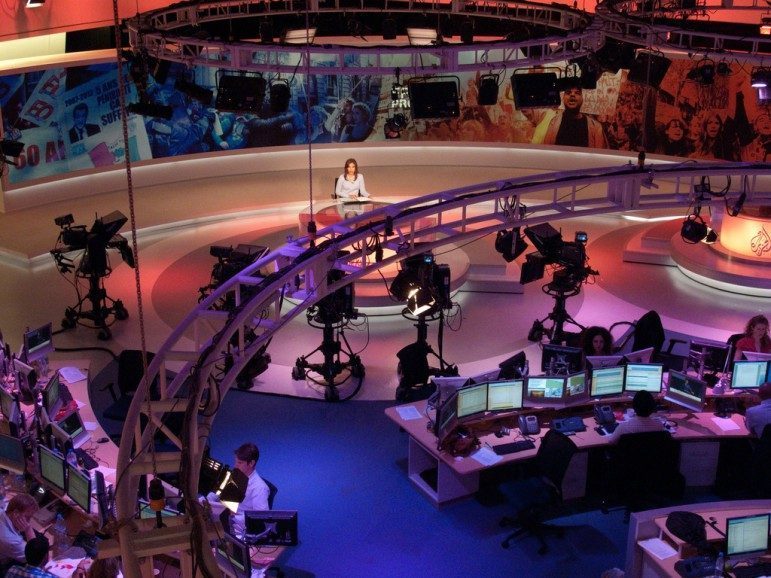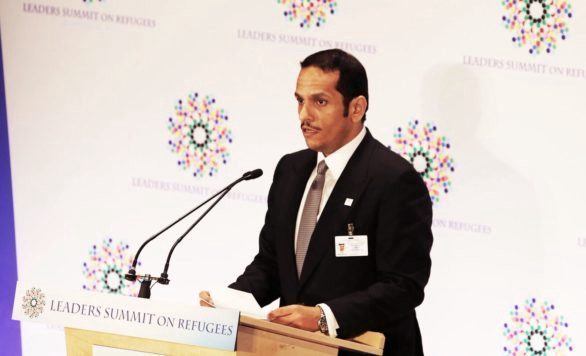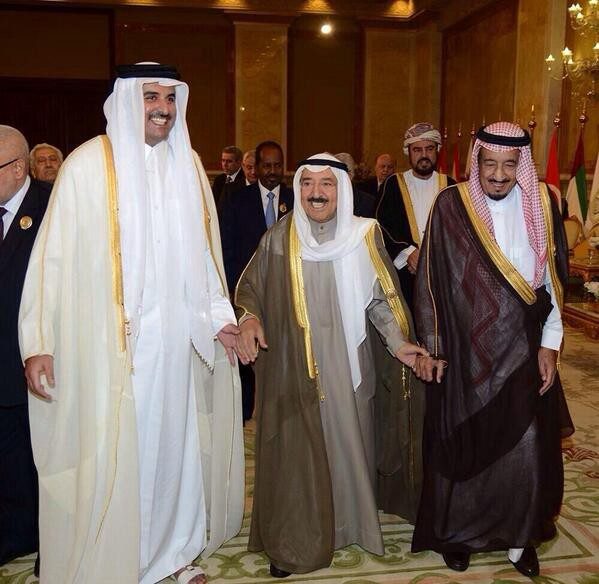
Qatari officials remained resolute in the face of a growing diplomatic crisis following the withdrawal of eight countries’ ambassadors from Doha this week.
The gaggle of nations, led by Saudi Arabia, the UAE and Bahrain, have all denounced Qatar for destabilizing the region and supporting terrorism. Officials deny these charges.
In addition to the three GCC countries, five other states have severed ties. They are Egypt, Libya, Mauritius, Yemen and the Maldives.
LIVE Last @qatarairways flight between Dubai and Doha before halt https://t.co/C4LGPrfQKX pic.twitter.com/yjumgfpwns
— AIRLIVE (@airlivenet) June 5, 2017
Many of the countries have taken the unprecedented step of closing their borders and airspace to Qatar.
The Gulf states involved have even ordered the complete expulsion of Qataris from their nations in the coming weeks.
Future of GCC
But what exactly the countries want Qatar to do to resolve the problem remains unclear.
Speaking to Al Jazeera last night, Qatar’s foreign minister said the real reasons for the crisis are unknown.

However, some Gulf experts have said that demands include the shuttering of Qatar-backed media, including Al Jazeera, HuffPost Arabi and the Middle East Eye.
The expulsion of leaders of political groups such as the Muslim Brotherhood and Hamas is also desired, according to Dr. James M. Dorsey, a senior fellow at the S. Rajaratnam School of International Studies.
Finally, Qatar will likely need to scale back its friendship with Iran, he added in a recent op-ed.
But for now, it looks like officials are not interested in altering their politics in Qatar.

“We reject that some in the GCC are trying to impose their will on Qatar or intervene in its internal affairs,” said foreign minister Sheikh Mohammed Bin Abdulrahman Al Thani last night.
“There are crises in Syria, Libya and Yemen, and we find it rather strange that the GCC has decided to attack Qatar at this particular time…
This brings about real questions about the future of the GCC nations, which are basically one people who share the same language and have extensive family ties among its peoples.”
Wait-and-see
In Qatar, residents have many questions about what the Gulf dispute means for them.
Yesterday, some panicked shoppers swarmed local grocery stores to buy up food and other supplies for fear of shortages due to the closed Saudi border.
However, officials quickly appealed for calm and have reassured residents that a plan is in place to keep things as “normal” as possible.
Statement by the Council of Ministers on Cutting Ties with the State of Qatar pic.twitter.com/GocK7nnbw2
— Qatar Embassy USA (@QatarEmbassyUSA) June 5, 2017
Meanwhile, foreign embassies in Doha have advised residents of possible travel disruptions in the coming weeks, given the closure of airspace in some countries and the suspension of flights to Doha by most Gulf carriers.
In separate statements, the British and US embassies in Qatar only advised expats to consult with their travel agents to ensure their flights have not been affected.
The Philippines Embassy did the same on Facebook. But it also called “on all Filipinos in Qatar to remain calm and exercise prudence as we all closely monitor the situation.”
Mediation
In the face of the uncertainty, Qatar’s Emir was scheduled to address the nation last night.
But the foreign minister said he postponed his speech at the urging of Kuwait’s leader, who is working to facilitate dialogue between the Gulf states.

According to Kuwait’s news agency, the nation’s Emir Sheikh Sabah Al-Ahmad Al-Jaber Al-Sabah yesterday urged Sheikh Tamim to “exercise self-restraint and refrain from steps that would escalate the situation.”
Both Kuwait and Oman have not officially chosen sides in this latest Gulf dispute.
They also stayed out of the fray when Saudi, the UAE and Bahrain pulled their ambassadors from Qatar in 2014.
On the ground
Meanwhile, as Ramadan continues, many residents are heeding the government’s advice to stay calm and are trying to live life as normally as possible.
However, it terms of the concessions Qatar is urged to make, it remains unclear whether any of them will actually happen.

That said, Emirati analyst Sultan Al Qassemi said Doha will likely be left with no choice but to capitulate eventually.
He cited the economic toll of restricted airspace and the need for outside supplies as the main reasons for this.
Al Qassemi also quoted one Gulf official as saying, “We are willing to wait a long time” for Qatar to come around.
However, “judging by the Qatari reaction so far, it seems the Gulf States’ patience will be tested,” he concluded.
Thoughts?






